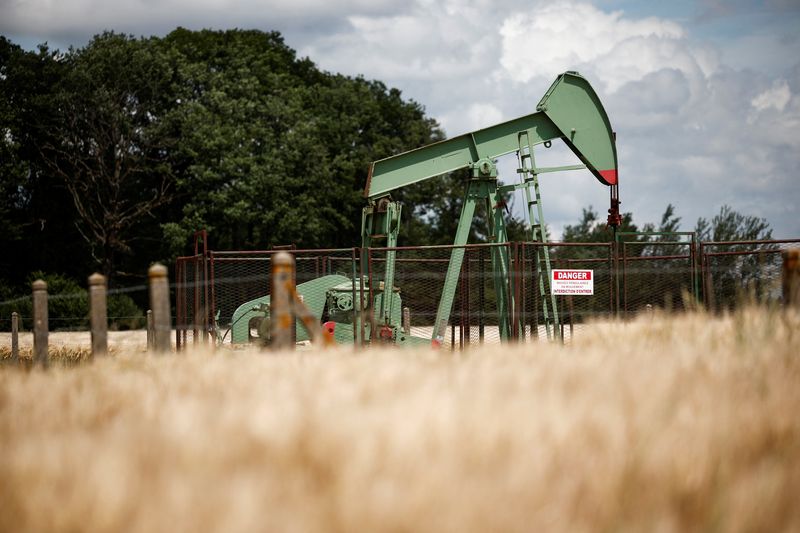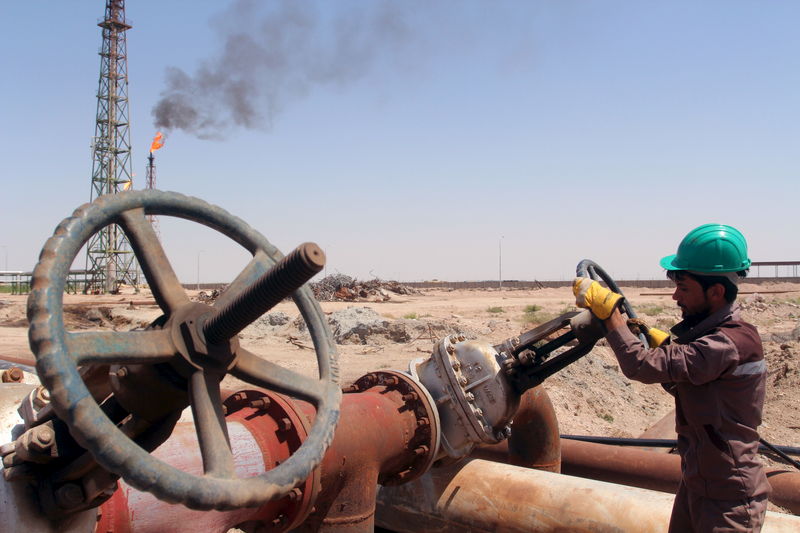By Nicole Jao
(Reuters) -Oil prices rose more than 1% on Thursday as expectations for a U.S. interest rate cut within weeks fueled a recovery after four days of price falls.
futures rose $1.17, or 1.54%, to $77.22 a barrel. U.S. West Texas Intermediate crude futures rose $1.08, or 1.5%, to $73.01.
On Wednesday, minutes from the Federal Reserve’s July meeting showed that most Fed officials believed the central bank was on track for a rate cut next month.
Higher interest rates increase borrowing costs, which can slow economic activity and dampen oil demand.
“The dollar sold off on news of the rate cut,” said John Kilduff, partner at Again Capital. “Everyone is now talking about a 50 basis point Fed rate cut, which would be significant,” he said.
Fed Chairman Jerome Powell will speak Friday at the annual conference of central banks in Jackson Hole, Wyoming. Traders will be looking for some insight into whether Powell expects to cut rates by 25 or 50 basis points.
The U.S. dollar has fallen recently on concerns about a weakening economy, which is supporting oil prices as buyers using other currencies pay less for dollar-denominated crude.
On Thursday, the U.S. Department of Labor said jobless claims increased over the past week but appear to be stabilizing around a level consistent with the gradual cooling of the labor market. This paved the way for interest rate cuts.
Also supporting oil prices, a U.S. government report Wednesday showed that inventories of crude oil, gasoline and distillates fell more than expected last week, a sign that demand is picking up.
In the Middle East, Iran-linked Houthi militants continue attacks on international shipping in solidarity with the Palestinians in the war between Israel and Hamas.
A Greek-flagged oil tanker carrying 150,000 tonnes of crude oil, which was evacuated by its crew after an attack in the Red Sea, now poses a danger to the environment, the EU’s Red Sea Mission Aspides said. EU, Thursday.

Investors are watching OPEC+, the Organization of the Petroleum Exporting Countries (OPEC) and allies including Russia possibly reconsider its plan to gradually reverse some production cuts in October.
OPEC+ has said its plan to increase production could be suspended or reversed if necessary.


